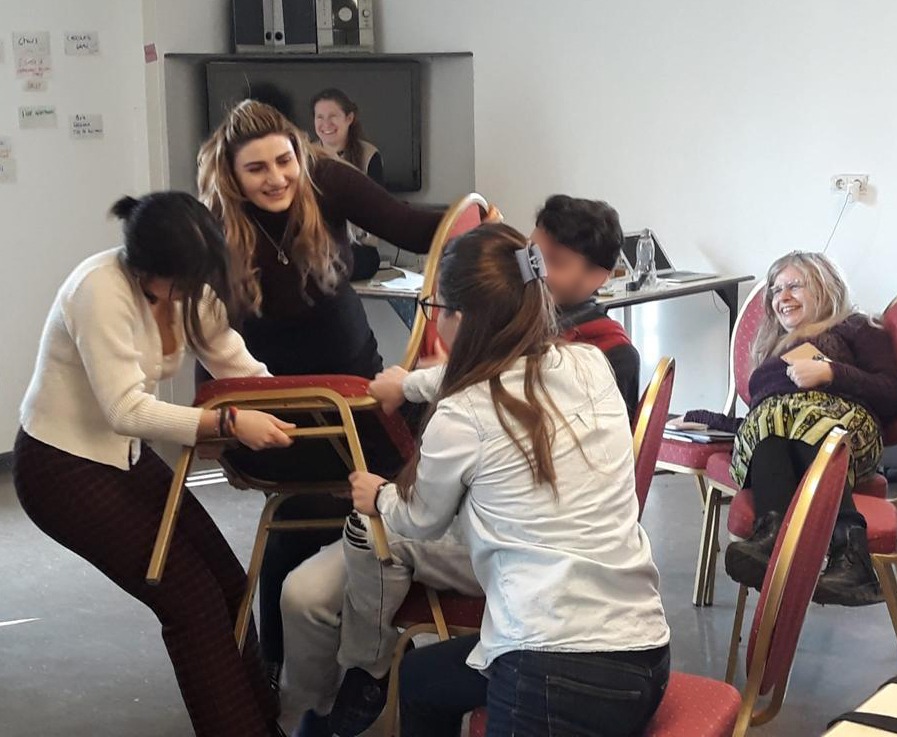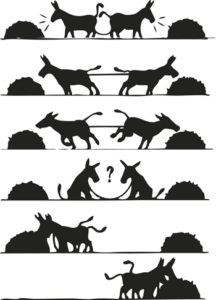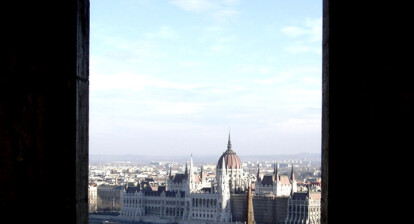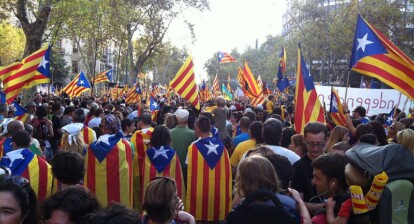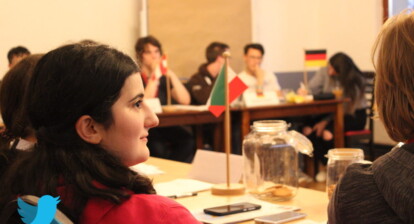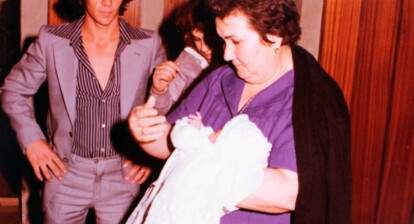What does democracy mean in daily life? How to democratically deal with dissent? During the EUSTORY Youth Activities 2021, Ana from Portugal and Fiona from Germany got in touch with the Betzavta Method for the first time. Followed by an in-person trainer’s workshop in Berlin, they not only experienced democracy first hand and made friends from all over Europe, but got to know themselves a little better.
The Seed of Friendship
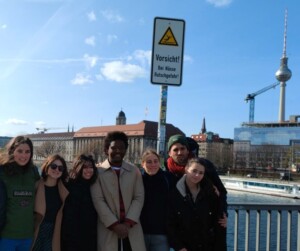
Making new international friends in Berlin during the “Democratically Together” workshop 2021 (photo: private).
We didn’t know each other. But thanks to Betzavta experiences, we have grown personally together. How did our story start? And which role did Betzavta play in becoming friends?
Fiona: I was surprised when Ana and I started referring to each other as “friends” after knowing each other from an online workshop only. But the chemistry was right from the beginning. I like to describe the EUSTORY experience as “meeting yourself with a different historical and cultural background”. You share similar interests in historical, political, and cultural topics – at a EUSTORY youth encounter you get a space to talk about different issues and exchange perspectives with participants from Europe and beyond.
Starting Online
It all started in 2021: We were introduced to the Betzavta method during the EUSTORY Online Youth Activity. Back then, almost every aspect of daily life was shaped by virtual meetings due to the Covid-19 pandemic. The workshop group was a mix of young Europeans from ten different countries, aged 16 to 21 years. The idea of the workshop: Experiencing conflicts in a group and learn to cope with intercultural and interpersonal dissent in a democratical way.
Challenging Circumstances
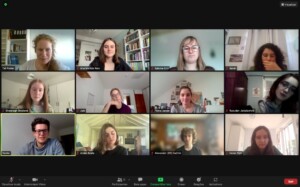
During the online workshop “The Language of Democracy” within the framework of EUSTORY Youth Activities 2021 (photo: private).
Even before the workshop “The Language of Democracy” started, it seemed very challenging to do a method which is as engaging and emotional as Betzavta is online. But it beacme an eye-opening and intense experience. Throughout eight sessions and two months, we explored what “freedom” means, learned how to solve historical dilemmas and how to make democratic decisions together. The method asked for constant self-reflection – individually and as a group.
We had a whole week to process the last session ourselves. We felt it was a process rather than specific moments or facts that broadened our minds. So, when we got the opportunity to sign up for a physical trainer’s program, we did not wait a second!
The Day We Logged Out
Five months after the online workshop, we had the chance to attend the in-person training “Democratically Together” in Berlin, where we finally experienced physical “togetherness”. Not only through the time we spent together during workshop sessions, but also during our freetime as well: going out for dinner, during the city trips or playing group games until late at night, let us grow together as a group. The group was different than the one we had worked with online six months before, but the trainer and some participants were the same. We were 18 people from seven European countries and neighboring countries (Armenia, Germany, Georgia, Greece, Lebanon, Portugal, Syria, and Turkey). The group was really international and covered a wide age range from 18 to 62 years. This gave us a broad view into a “real” society with different experiences and perspectives.
Back to Real Life Experience
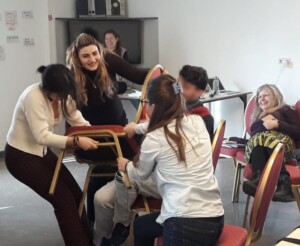
Fighting over the chairs: An exercise during the workshop “Democratically Together” 2021 in Berlin (photo: private).
When in Berlin, we realised that an essential part of this method is to be “stuck” together: You are “forced” to spend time together after the so-called “units”. The attempt to overcome differences by being confronted with a person having opposing points of view is as essential as the reflections and group discussions after each activity. It is vital to learn that people have different standings in the game, and play it with varying levels of seriousness. For instance, some might not view the game as such, while some see unbreakable boundaries within the game. Therefore, going “all in” in the game might unintentionally disregard the other person’s values. Especially with an international group and various cultural backgrounds, it is crucial to figure out that not every action we interpret as personal was meant like this.
Therefore, during the in-person training, the activities got quite physical: In “The Chair Game”, our group was separated into two parts, and had opposing tasks to fulfill. Following different rules we were instructed with, we found ourselves fighting about the chairs.
False Alarm, Not an Attack!
Ana: For example, I am used to express polite and open communication of emotions. But within the mix of different cultures, it is different for everyone. Thus, when some people did not use polite phrases that much, and were extremely open about their thoughts, not trying to hide them at all, it didn’t sound very respectful to me first. However, this changed when we got to know each other better. It became clear that this was just a different cultural or individual habit and was not meant to be disrespectful or a personal attack at all.
The Other Side of Betzavta
Fiona: I had a similar experience during our online session already. At this point, it is even more important to highlight that it was online. Being physically separated, you had less chance to feel the mood, the setting, and the emotions of a person through a square on your screen. It showed only their face and, in best cases, their upper body, too. I was highly offended by someone who said one thing and did another. At that moment, I felt my trust was misused, and this caused negative emotions. I not only felt betrayed, but saw one of my fundamental aspects of personal rights attacked – the one to make free choices and have this ability respected by others, as well as having the freedom to democratically participate and trust the correctness of the process, because this is necessary when you are outvoted.
I am not Crying. You Are!
During the reflective discussions in Berlin, the energy within the group increased remarkably. The emotional atmosphere rose until it was tense, as expected when you are stuck together for a week, even more triggered by our multicultural backgrounds and different way of handling things. But no matter how extreme the tensions are, the motto of Betzavta is to “trust the process”. Raising tensions is not the purpose of this training. In our experiences, it just brings up existing, underlying tensions between the participants and helps them through processing. Betzavta is just used to unplug the repressed emotions and gives them some space to come up, being expressed and dealt with. This is not always a tear-free process, but at the end of the day, as far as I could tell, everyone in the group was okay with each other. No one held a grudge against anyone else. All participants even put a plan for a reunion in 2023: proof enough that friendships were built.
This project made us interact with people from different countries and cultures worldwide. Encountering other viewpoints allowed us to grow and understand one another more. The thing that helped us all to achieve this, was the aspect of “forced togetherness”, such as the “String” and “Chairs” activities.
Tying the Knot… Literally!
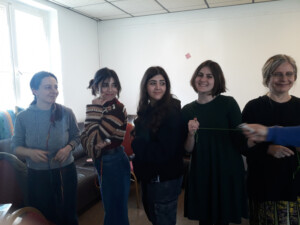
The “Strings’ Activity” during the “Democratically Together” Workshop in Berlin. Photo: originally published with Natur Freunde Jugend, link: https://www.naturfreundejugend.de/termine/-/-/show/5731/wie_gestalten_wir_unser_miteinander_betzavta_wochenende/
Fiona: Before I joined the trainer workshop, I had only attended an online Betzavta workshop. This made me even more excited to experience Betzavta in real life. The method was beneficial in integrating new members into the group, because many questions were raised, and the group is directly “forced” to deal with own group dynamics. For instance, I facilitated „The Strings“ activity, aiming at bringing participants in an uncomfortable situation, in which they have to spend the break tied together. In this case, the dilemma was between participants’ needs and the group’s compromises. However, when the group did it for the second time, they were more prepared for it – putting their more comfortable needs on their list or cutting a very long piece of string. It was a funny experience, even though there was almost no discussion in our very close group because no one untied him- or herself.
Dazed in Thoughts: Changed Perspectives
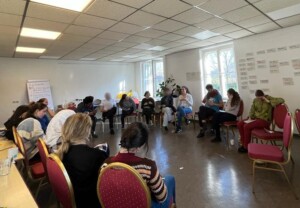
Reflecting the experiences of the “Democratically Together” workshop 2021 in Berlin (photo: private).
Throughout the workshop, some of our views changed. First and foremost, we gained more experiences and competences of critical self-reflection. Being the epicenter of our perspectives, we uncovered our own beliefs, personal viewpoints, and hidden stereotypes we weren’t aware of before. For example, we learned how to achieve a democratic resolution by dealing peacefully with a multi-perspective approach: Constantly reflecting on group dynamics, each participant’s backgrounds and our own behaviors provided an intercultural communication that led us change perspectives.
When it comes to the multi-perspective approach, we can recall one episode that showed the difference in our thought processes based on different political and cultural backgrounds. During the online session on a warm autumn day, our facilitator said: „What a nice afternoon to explore freedom“. On that matter, we created different definitions of freedom according to our personal beliefs. A girl from Western Europe saw it like this: „Freedom is the governance upon yourself”, while some participants from countries that were once part of the Soviet Union or Socialist Bloc countries, said thought-provoking statements like „Freedom is expressing yourself without anyone oppressing your opinion“, or „Freedom is choosing more than one phrase to define freedom“. To us, these definitions of freedom were completely new.
Different Language – Different Understanding
Ana: Later on, we discussed a lot and reflected on the names of both Betzavta workshops, the online and the physical one: “The Language of Democracy” (EUSTORY Online Workshop 2021) and “Democratically Together” (offline training education workshop in Berlin). During our first workshop, we could only communicate via online tools. This made us carefully select our words. We always needed to find the right tone and meaning of words as we had almost no chance to give any non-verbal supplements to our comments. But of course, we were unaware of its importance when we started the programme.
Fiona: It was a development lasting for several sessions. It also had a huge psychological impact on me. As English is not my mother tongue, and being a person that always cares to find the right words in my native language (German), it was hard to always express myself in the way I meant it. Luckily, we mastered those struggles after some time.
Betzavta Results: In the Shoes of Another Person
Fiona: Betzavta helped me a lot with personal problems – it gave me the experience of really looking at the world from the other person’s perspective.
For instance, during my Betzavta journey, I volunteered at a social institution for a year after school. A turning point in the volunteer service was my broken elbow. Because of that accident, I couldn’t work for two and a half weeks. When I returned to work, still on heavy pain medication, my boss did not accept that I was not able to do all things I was doing before: cleaning, doing dishes,..But he let me do these things anyway. From my perspective, my boss was doing unfair things. She had me work for six weeks every single day (also on the weekends). This is not only illegal, but also a questionable treatment of staff, especially to young people, who sign up for doing unpaid volunteer work.
Betzavta helped me recognising that my boss was in a stressful situation herself and had some trouble with her supervisor. Thus, she was just very focused. From her perspective, it was neither a problem working on weekends, nor was it fitting into her routine that certain things were not done. The change of perspectives allowed me to see that my boss was probably not treating me badly on purpose, but just could not widen her point of view.
As Human As It Gets
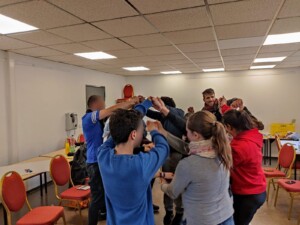
Energizer activity within the “Democratically Together” workshop 2021 in Berlin (photo: private).
Ana: In a way, all the Betzavta exercises took us to the epicenter of our consciousness and put us on a path of self-reflection and deep learning. Without a doubt, it was an experience I will take with me for the rest of my life. Being a participant first and then a facilitator is a journey that leads us to immerse ourselves in even greater learning. I got the feeling that I somehow grew as a human being.
Facilitating Like No Other
Betzavta method’s uniqueness is explained in detail below in the info box.
For us, one of the most interesting characteristics of Betzavta is the role of facilitators. Their role is essentially being a guide, a lamp. They represent the group’s light to see their learning development throughout the activities, discussions and reflections.
However, freedom is always given to the group to regulate itself. For example, in the “Rule Game” in Berlin, we distributed cards to the participants, on which they wrote their names. Whoever had the most cards in fifteen minutes could make a valid rule for the whole group. Afterwards, we reflected the moment in two rounds. This was to discuss participants’ feelings about the process and the new “law” for the team. All participants shared their positions through the notion of authority: responsibility lies in each participant’s hands, who must find out how to manage their own group.
Creating Mind-Changing Moments
As a trainer you have some challenging tasks, such as understanding the group dynamics. You must make sure to pay attention to the dynamics emerging in the activity, read the signs of the group’s dilemmas, look at non-verbal expressions and interactions between people to maintain diversity.
We have to remember that all actions are part of human behavior. Everyone has the right to speak or remain silent, so being careful not to put pressure on anyone is essential. It is challenging to avoid an energy lack in the group while keeping the process lively, and maintain a friendly environment in the room. We must remain empathetic, sensible, understanding, neutral, inclusive and flexible to achieve the goal of creating impact and mind-changing moments with a gentle approach.
Friendship at First Sight
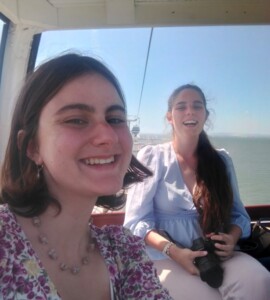
Fiona visiting Ana in Lisbon, Portugal in 2022 (photo: private).
When we met in Berlin, we got along so well. Everyone else was hardly believing that we had just met there for the first time in person. Maybe we “clicked” partly because we both were the “new” ones in an already existing group. None of us had enrolled in university yet, while most of the group was already employed. From our point of view, there is another unique aspect of Beztavta. Through this method, people genuinely open up and reveal a side of them you do not get to know that fast usually. Thus, getting to know each other profoundly and quickly is easier. This is how we became friends.
Fiona: I even visited Ana in Portugal, and we now plan that Ana will come to Germany next summer. In between, we met with other EUSTORY friends, Sheenagh and Andie from Ireland in Zurich, Switzerland. It is great to see what kind of domino effect joining a EUSTORY activity had on our lives.
The Truth in Yourself
We want to describe the Betzavta method as the truth about oneself. We uncovered our beliefs and hidden stereotypes by facing the conflict. Communicating our individual perspectives on concrete situations was the starting point. We learnt how to deal with multi-perspective approaches and conflicts from different perceptions of history, politics, society, religion, and culture. Ultimately, we managed to develop a tool kit for peaceful and democratic conflict resolution and international understanding. It’s the confrontation with dilemmas and the examination of both, your own internal conflicts and group’s conflicts, not to forget about how we perceive the emotions of our peers by constantly reflecting on group dynamics, and your own behavior. Betzavta is about changing your own perspective and get to know yourself better.

